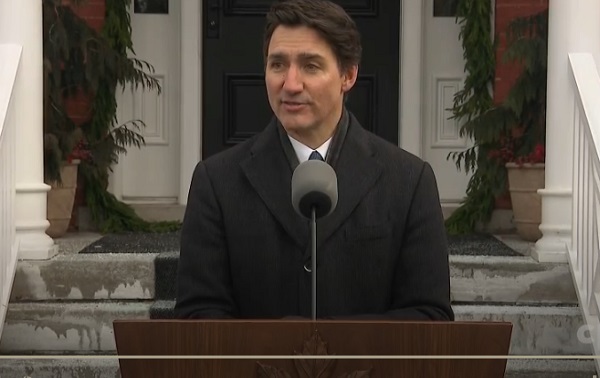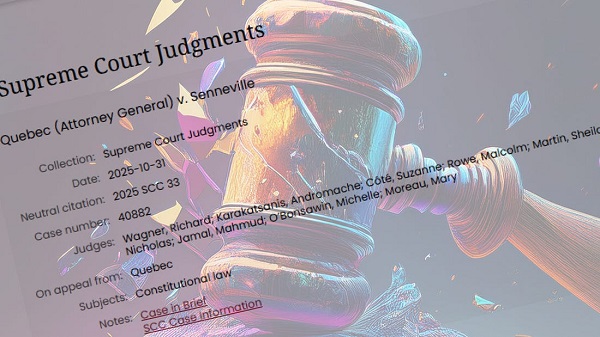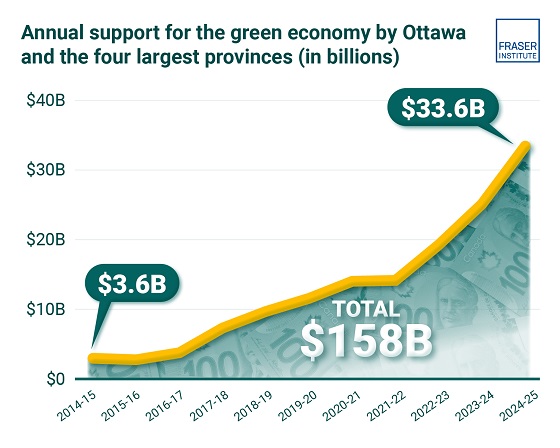National
Trudeau Resigns! Parliament Prorogued until March 24

From LifeSiteNews
Liberal Party leader Justin Trudeau will officially resign as prime minister of Canada after a new Liberal Party leader is found.
Prime Minister Justin Trudeau has announced his resignation as prime minister of Canada and leader of the Liberal Party.
On January 6, 2025, Justin Trudeau announced his impending retirement as Canada’s prime minister after months of abysmal polling predicting a massive Conservative victory in the fall 2025 election.
“I intend to resign as party leader, as prime minister, after the party selects its next leader through a robust, nationwide, competitive process,” he told reporters outside the Rideau Cottage in Ottawa.
“Last night, I asked the President of the Liberal Party to begin that process,” Trudeau continued.
“It has become obvious to me through the internal battles that I cannot be the one to carry the Liberal banner into the next election,” he added.
Trudeau revealed that he plans to stay on as leader until the Liberal Party’s National Board of Directors selects a new leader. He also asked for Parliament to be prorogued until March 24, by which time a new leader should be selected.
The prime minister had repeatedly assuring Canadians that he would lead the Liberal Party into the 2025 election. However, inside sources revealed that Trudeau’s resignation was inevitable considering his party’s loss of popularity.
Trudeau has served as prime minister since 2015, winning three consecutive elections. However, polls have predicted a massive Conservative victory as Canadians appear to have tired of Trudeau’s radical agendas, including pushing abortion, climate regulations, and LGBT ideology targeted at children.
Trudeau’s resignation comes just a few weeks after both his Housing Minister Sean Fraser and Deputy Prime Minister Chrystia Freeland left the Liberal government.
Likewise, last week, Liberal MPs from Quebec appeared to have banded together at least unofficially to demand Trudeau’s immediate resignation.
Additionally, New Democratic Party (NDP) leader Jagmeet Singh, whose party has been propping up the Liberal minority government, called on the prime minister to resign. Singh said that, should Trudeau not step down voluntarily, he would consider voting non-confidence, saying, “all tools are on the table.”
Justin Trudeau, 53, is the son of the late Canadian prime minister Pierre Trudeau. Pierre Trudeau held the office from 1968 to 1979, and then from 1980 until his resignation shortly before the elections of 1984. Justin Trudeau, known to Canadians as a child, re-entered public life briefly when he gave the eulogy at his father’s state funeral in 2000. A drama teacher by profession, Justin Trudeau successfully ran for office in the 2008 federal elections and was elected leader of the Liberal Party in 2013.
Justice
A Justice System That Hates Punishment Can’t Protect the Innocent

Five judges decided that child exploitation isn’t worth a year in prison
What the hell is going on in Canada?
Quebec (Attorney General) v. Senneville – SCC Cases
This isn’t a legal debate. This isn’t a constitutional nuance. This is a collapse. A collapse of morality, of justice, of basic human decency.
This week, the Supreme Court of Canada ruled—by a 5-4 vote—that handing a child pornographer a one-year prison sentence is cruel and unusual punishment. Yes, really. According to the highest court in the land, asking a man who hoarded videos of children—actual children—being raped… to serve twelve months behind bars… is too much to ask. It’s excessive. It’s unfair.
ARE YOU HEARING THIS?!!!!?!!!!?
Let’s talk about the two men at the center of this decision. Not hypotheticals. Not academic theories. Real men. Real crimes. Real victims.
Louis-Pier Senneville—a former soldier, no less—pleaded guilty to possessing over 470 files, 90 percent of which featured young girls aged 3 to 6. Think about that. Three years old. These weren’t gray-area images. These were children, babies, being sodomized, penetrated, used like objects. And he didn’t stumble across them—he looked for them, on specialized sites, and kept them for over a year.
Mathieu Naud? He went even further. 531 images, 274 videos, kids aged 5 to 10. Anal, vaginal, oral rape. These are things no human being should even have to read about—let alone sit in front of a computer and download, categorize, and distribute. Which he did. For months. With software designed to erase his tracks.
This isn’t some “first-time slip-up.” This is deliberate, targeted, depraved behavior. And now?
90 days.
9 to 11 months.
That’s the punishment.
That’s what the Canadian justice system thinks these crimes are worth.
Because five justices decided that asking a pedophile to spend one year in prison might be too harsh for a hypothetical offender. Not these offenders. Not the ones with troves of abuse files saved on hard drives. No… some imaginary guy who maybe clicked the wrong link.
This is what liberalism does to a justice system. It corrupts it beyond repair. It starts with empathy for criminals, and ends with judges protecting predators from consequences. Because in the upside-down world of progressive legal theory, the offender is always the victim. And the actual victims—the kids in those videos—are reduced to footnotes. Inconvenient collateral damage.
This decision—this revolting, disgraceful ruling—is not some fluke. It’s not an isolated misfire by a rogue court. It is the natural conclusion of a liberal worldview that refuses to see evil for what it is. A worldview that sees punishment as outdated, that sees moral judgment as offensive, and that sees child predators as victims of circumstance who just need counseling and compassion.
You want to know what happens when you erase right and wrong?
When your leaders worship “inclusivity” more than innocence?
When your courts protect predators more than children?
This happens.
Five judges decided that a man hoarding child rape videos should be treated with mercy.
Not the children in the videos—no. Not the parents whose lives were shattered.
Not the society that expects its institutions to defend the weak and punish the wicked.
No, mercy for the predator. ALWAYS FOR THE PREDATOR!!!
And now these men—Senneville and Naud—will be out walking the streets. Free men. Maybe shopping next to you at the grocery store. Maybe living near a school. Because Canada’s highest court decided that a year in prison was just too mean.
This isn’t policy failure. This is moral treason.
It’s going to take more than reform to fix this. It’s going to take an entirely new political order—one that puts children before criminals, justice before hypotheticals, and truth before ideology.
Until then, this isn’t a justice system.
It’s a disgrace.
And every decent person in Canada should be outraged.
Aristotle Foundation
B.C. government laid groundwork for turning private property into Aboriginal land

It claims to oppose the Cowichan decision that threatens private property, but it’s been working against property owners for years
A City of Richmond letter to property owners in the Cowichan Aboriginal title area recognized by the B.C. Supreme Court has brought the judgment’s potential impacts into stark reality.
“For those whose property is in the area outlined in black,” the letter explained, “the Court has declared Aboriginal title to your property which may compromise the status and validity of your ownership.”
While Premier David Eby has been quick to disavow the decision, the reality is his government helped set the stage for it in multiple ways. Worse, it quietly supported a similar outcome in a related case, even after the concerning implications of the Cowichan judgment were well-known.
The problematic nature of the Cowichan decision has been well-established. It marks the first time a court has declared Aboriginal title over private property in B.C., and declares certain fee simple land titles (i.e., private property) in the area “defective and invalid.”
Understandably, the letter raised alarm bells not only for directly-affected property owners, but also for British Columbians generally, who recognize that the court’s findings in Richmond may well be replicated in other areas of the province in the future.
As constitutional law professor Dwight Newman pointed out in August, if past fee simple grants in areas of Aboriginal title claims are inherently invalid, “then the judgment has a much broader implication that any privately owned lands in B.C. may be subject to being overridden by Aboriginal title.”
In response to media questions about the City of Richmond’s letter, Eby re-stated his previous commitment to appeal the decision, saying, “I want the court to look in the eyes … of the people who will be directly affected by this decision, and understand the impact on certainty for business, for prosperity and for our negotiations with Indigenous people.”
While the words were the right ones, his government helped lay the groundwork for this decision in at least three ways.
First, the province set the policy precedent for the recognition of Aboriginal title over private property with its controversial Haida agreement in 2024. The legislation implementing the agreement was specifically referenced by the plaintiffs in the Cowichan case, and the judge agreed that it illustrated how Aboriginal title and fee simple can “coexist.”
Eby called the Haida agreement a “template” for other areas of B.C., despite the fact that it raised a number of democratic red flags, as well as legal concerns about private property rights and the constraints it places on the ability of future governments to act in the public interest.
While the agreement contains assurances that private property will be honoured by the Haida Nation, private property interests and the implementation of Aboriginal title are ultimately at odds. As Aboriginal law experts Thomas Isaac and Mackenzie Hayden explained in 2024, “The rights in land which flow from both a fee simple interest and Aboriginal title interest … include exclusive rights to use, occupy and manage lands. The two interests are fundamentally irreconcilable over the same piece of land.”
Second, the provincial and federal lawyers involved in the Cowichan proceedings were constrained by the government in terms of the arguments they were allowed to make to protect private property. In August, legal expert Robin Junger wrote, “One of the most important issues in this case was whether Aboriginal title was ‘extinguished’ when the private ownership was created over the lands by the government in the 1800s.”
The Cowichan judgment expressly notes that B.C. and Canada did not argue extinguishment. In B.C.’s case, this was due to civil litigation directives issued by Eby when he was attorney general.
Finally, provincial legislation implementing the United Nations Declaration on the Rights of Indigenous Peoples (UNDRIP) also played a role in supporting the judge’s conclusions, a point Newman wrote about in August. “They’re used in support of (even if not as the main argument for) the idea that Aboriginal title could yet take priority over current private property rights,”
In addition to setting the stage for the Cowichan decision, and despite their stated concerns with that judgment, the B.C. government has actively sought judicial recognition of Aboriginal title over private property elsewhere.
The overlaying of Aboriginal title over private property with the Haida agreement was already problematic enough prior to the Cowichan decision. However, even after the serious implications of the Cowichan decision were clear, the provincial and federal governments quietly went before the B.C. Supreme Court in support of a consent order that would judicially recognize the Aboriginal title over the entirety of Haida Gwaii.
The successful application had the effect of constitutionally entrenching Aboriginal title for the Haida Nation, including over private property, with the explicitly stated goal of making it near-impossible for future democratically elected governments to amend the agreement.
The reality is, the B.C. government claims to oppose the Cowichan decision even as it laid the groundwork for it, and it has actively pursued similar outcomes on Haida Gwaii. Repeated claims of seeking certainty and protecting private property have been belied by this government’s actions again and again.
Caroline Elliott, PhD, is a senior fellow with the Aristotle Foundation for Public Policy and sits on the board of B.C.’s Public Land Use Society.
-

 Alberta2 days ago
Alberta2 days agoFrom Underdog to Top Broodmare
-

 Business1 day ago
Business1 day agoTrans Mountain executive says it’s time to fix the system, expand access, and think like a nation builder
-

 Economy2 days ago
Economy2 days agoIn his own words: Stunning Climate Change pivot from Bill Gates. Poverty and disease should be top concern.
-

 Business2 days ago
Business2 days agoPaying for Trudeau’s EV Gamble: Ottawa Bought Jobs That Disappeared
-

 International22 hours ago
International22 hours agoBiden’s Autopen Orders declared “null and void”
-

 National2 days ago
National2 days agoElection Officials Warn MPs: Canada’s Ballot System Is Being Exploited
-

 Addictions2 days ago
Addictions2 days agoThe Shaky Science Behind Harm Reduction and Pediatric Gender Medicine
-

 Business2 days ago
Business2 days agoClean energy transition price tag over $150 billion and climbing, with very little to show for it








